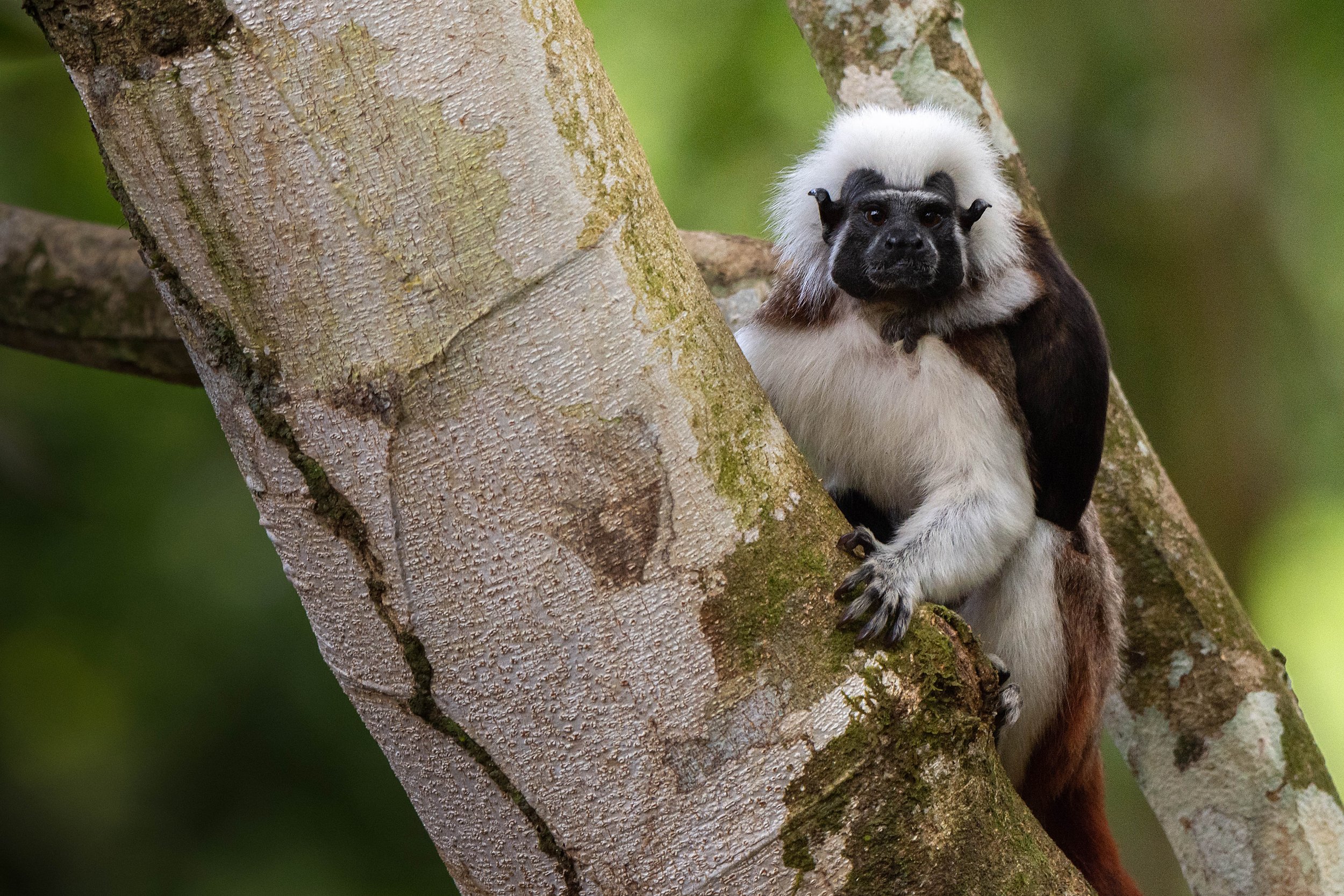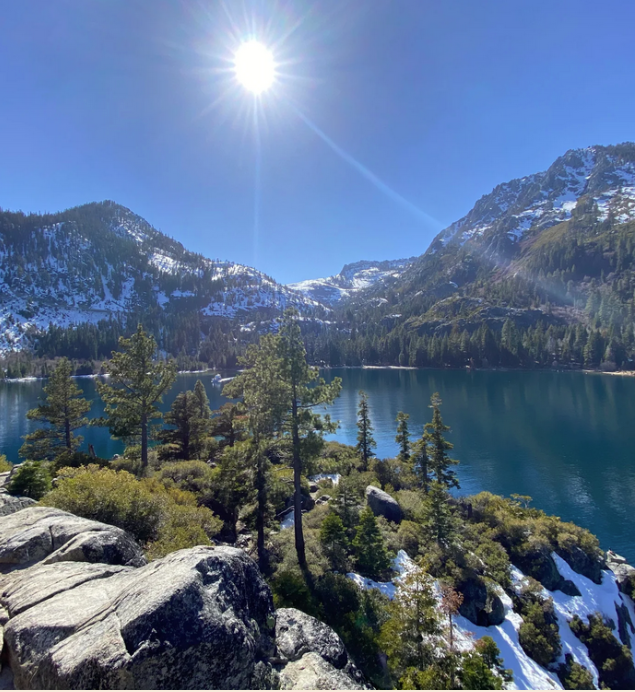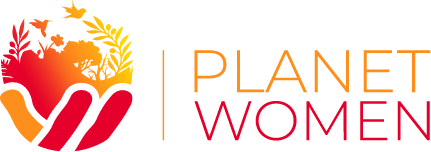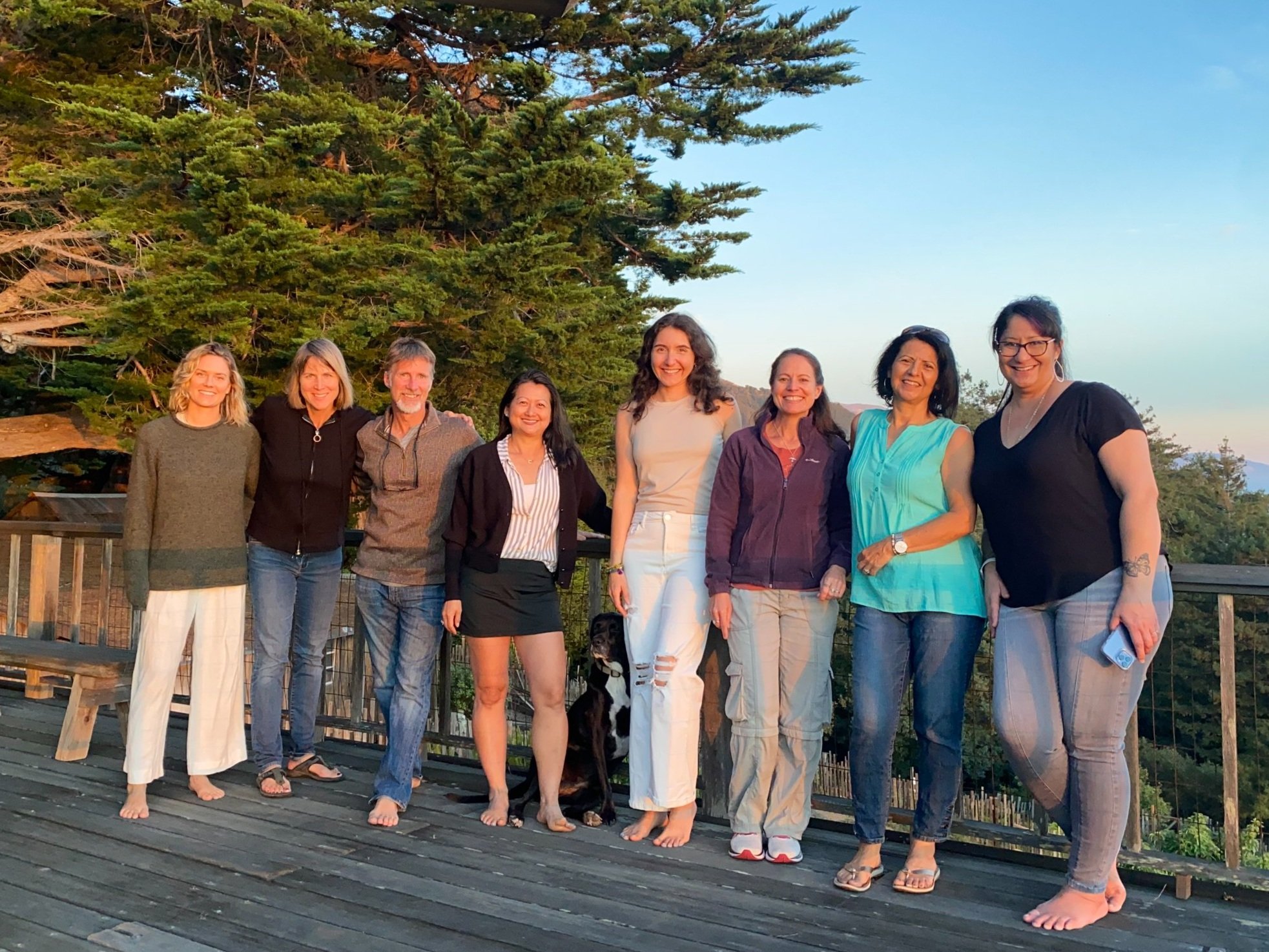
2023 Mid-Year Report
A warm thank you to Planet Women’s community of supporters and partners!
Your commitment to caring for Earth’s vibrant biodiversity has created ripples of positive change across the globe.
How do we cultivate leadership for a thriving future?
How do we cultivate leadership for a thriving future?
This year, our team has focused on the idea of, “Leadership for a Thriving Future.” Over the last few months, we asked our staff, partners and friends to imagine best-case scenarios for the future. What if everything worked out for people and nature? What could our world look like? What leadership qualities are instrumental to creating this future? How do we embody those qualities in our professional lives and develop systems to cultivate healthy leadership?
Together, we’ve explored these questions through community discussions and events, such as:
Planet Women Presents: Starting a New Thing We spoke to women who launched their own businesses to make a difference in the world.
Voices of the Future Gen-Z leaders shared their wisdom on staying optimistic, being creative and creating systemic change on International Biodiversity Day.
Leadership for a Thriving Future We heard from diverse women who are shaping the environmental movement on International Women’s Day.
Sparks of Change We hosted a series of discussions in Half Moon Bay, California to explore how to be a better ally, decolonize philanthropy and create a new leadership paradigm.
We heard many creative and wonderful things from you! In many responses, we saw Planet Women’s values reflected back to us: be inclusive, share power, honor Indigenous and intuitive wisdom, act with and for many generations. We also got no easy answers. These are simple questions, but they point to complex systems that need to shift from extraction and oppression to cultivation and regeneration. This requires a deep, slow change that takes time and trust.
Planet Women enables systemic change in three ways:
-
We have a network of trusted advisors who introduce us to well-respected, local organizations that support women, Indigenous communities and forest and water health. And we build personal relationships with our partners to understand their aspirations and the challenges that they face. This year, we increased our funding for field work and offered grants to three new partners.
-
Along with providing grants, we draw on the skills of our team and our network to meet the needs of our partners. We’ve introduced partners to new donors and board members, advised on strategic planning and supported storytelling and marketing initiatives. We also provide technical expertise in how to embed gender into fieldwork and planning—a process called, “gender mainstreaming.” This year, we launched a six-week seminar on gender mainstreaming for more than 90 participants (men and women!) through our initiative,the Center for Gender, Equity and the Environment in Africa.
-
Planet Women was designed around a model of leadership that centers women and marginalized communities, relies on power-sharing and compassion, and values science and cultural wisdom. We invite people across the environmental space to learn alongside us through our public events and our leadership programs: the 100 Women Pathway and the Regenerative Leadership Project. In coming months, we will publish our first book—a guide to becoming a regenerative leader by Dr. Liza K. Williams, our Director of Cultural Transformation!
Explore stories of what we’ve accomplished together in 2023…
Andes-Amazon
The Andes-Amazon is home to the world’s largest rainforest and largest river basin in the world. Rich biodiversity thrives alongside more than 500 distinct Indigenous Peoples—including some Peoples that have never had contact with the “outside world.” One-third of all known terrestrial species of plants, animals, and insects exist in the 2.86 million square miles of the Amazon Rainforest, as well as 10% of all biomass on the planet and 20% of the world's freshwater.
Despite its importance, 18% of Amazon forests have been lost, and an additional 17% are degraded. The biggest threats to the forest are agricultural expansion, gold and oil mining, illegal logging and forest fires.
In the Andes-Amazon this year, Planet Women’s community has invested in Indigenous and youth environmental defenders, nature education and career training for local communities near biodiversity hotspots, and forest restoration work.
-

NEW Partner! Building Youth Political Power in Brazil with Youth 4 Nature
Your support allowed us to grant funds to Y4N as they work to establish the National Council of Youth for Climate Action in Brazil. A coalition of 31 youth-led organizations are coming together to promote the political participation of Brazilian youth in national climate and nature policy decisions.
-

Resourcing Environmental Defenders with Cultural Survival
With your generosity, Planet Women re-invested in trainings for women environmental defenders in the Andes-Amazon as well as fellowships for Indigenous youth leaders. We are also supporting Cultural Survival’s efforts to build their capacity around Indigenous understandings of gender.
-

Endangered Wildlife Win in Colombia with Women for Conservation
Planet Women’s first-ever grant in 2020 helped expand the Tití Nature Reserve in Colombia and prevented a mining operation from destroying forest habitat for the critically endangered cotton-top tamarin monkey. Now, this expansion and diligent partner efforts have yielded a delightful result: two new tamarin babies!
Colorado River Basin and American West
The monumental lifeline that is the Colorado River has carved canyons and sustained cultures and wildlife for millions of years—yet now it’s drying up. The Colorado River runs from the Rocky Mountains through seven U.S. states and into Mexico where it has historically flowed into the Gulf of California. Today, the river rarely makes it that far. Demand for water exceeds the river’s capacity and the past 20 years of megadrought have further imperiled the system.
Researchers estimate that Arizona, California, and Nevada will have to cut their use of Colorado River water by 40% over the next 30 years due to climate-driven drought. To save this important river and the 40 million people that depend on it, a holistic approach and more diverse voices are needed.
In the American West this year, Planet Women has funded local and regional organizations working on climate resilience, equitable water management, forest and river restoration, and Indigenous leadership and cultural preservation.
-

NEW Partner! Washiw Zulshish Goom Than-Nu (WZGT) cares for Lake Tahoe and its Native people
Your support enabled Planet Women to provide funds for a spring gathering of the Washoe people. This gathering involved ceremony and community discussion around their vision for cultural survivance and protecting the biodiversity of the Tahoe region. Their stewardship of culture and nature reflects their understanding that “People and Land are One.”
-

Habitat Restoration and Increasing Access to Recreation with Forever Our Rivers
Planet Women’s grants to Forever Our Rivers supported their work across four culturally and ecologically significant watersheds in Arizona, Utah and Colorado. These funds have gone toward restoring river habitat, and increasing access to river recreation and nature education in local communities.
Africa
Planet Women’s work in Africa focuses on the Congo River Basin and the adjacent Albertine Rift. This region centers on the second largest rainforest in the world—the Congo Rainforest. The Congo and Amazon Rainforests are critical to mitigating climate change, as they regulate global carbon levels, temperatures, and rainfall patterns.
The lush Congo Basin and the mountainous Albertine Rift, which lies to the east, are home to an immense wealth of biodiversity, including critically endangered African forest elephants, critically endangered eastern lowland gorillas and endangered mountain gorillas. Humans have lived in the Congo Basin for more than 50,000 years; and the region supports more than 75 million people. Yet, this forest is at risk from oil and gas extraction, mining, logging and agricultural conversion.
In Africa this year, Planet Women has invested in forest restoration, business and leadership training for local women, faculty salaries and scholarships for local college students to study environmental science, and programming through our Center for Gender, Equity, and the Environment.
-

Foresters get peer support and seed grants through our Women's Leadership Circles
In March, we kicked off our Women’s Leadership Circle with 24 women who work in forest restoration in Africa. Each month, participants gather virtually for collective learning and peer support. The gatherings are shaped by the women leaders and discuss topics like having their voices heard in decision making, challenges related to women’s access and control over resources and practical tools to engage men as allies.
-

Rwandan women build flourishing farms and families with Kula Project
Planet Women’s community supported a second cohort of women to attend Kula Project’s leadership and business fellowship in Rwanda. The Kula Fellowship Program is a 15-month learning journey that provides coffee industry training, business investments, and life and leadership skills to empower women to build profitable businesses while stewarding the environment.
Transforming the Culture of Conservation
Planet Women was created based on a new model of leadership that centers women and marginalized communities, relies on power-sharing and compassion, and values both science and cultural wisdom. The values underpinning our model guide how we interact within our team and how we engage with our wider community.
There’s no road map to decolonizing work culture. Some days it feels intuitive and other days it feels like we’re building the plane as we fly it. Fortunately, our team is committed to co-creating this together—from our employee benefits to how we conduct performance reviews.
This year, we are excited to share some of the ways that we’ve decolonized our workplace:
Hired a Managing Director to co-lead Planet Women! Since Planet Women’s inception, co-leadership of the organization has been the goal. We completed the hiring process and the new Managing Director will start in July. Stay tuned for our upcoming announcement!
Prioritized rest! Planet Women created a sabbatical policy, allowing employees who work for two years to take 4-8 weeks off. Director of Development & Marketing Joanna Marshall was awarded the first sabbatical and used her time to do a 10-week Buddhist retreat at the San Francisco Zen Center.
Unique approach to philanthropy! Director of Individual Giving Lisa Sheffer is creating a community-centric fundraising plan, which aligns with our values and shapes how we distribute grants and fundraise for Planet Women. The community-centric approach allows us to make space at the table for all of our stakeholders, deepening our collaboration and engagement with partners, grantees, donors, volunteers, board and staff.
Reimagined performance reviews! Janet Nguyen and Sela Martinez designed and launched a new method of providing generous feedback and fostering employee growth. We call it, GIFT. Employees and managers have journal-style writing prompts and meet four times per year to discuss these topics: living our values, generous feedback, strategy impact, well-being and growth, and looking forward.





